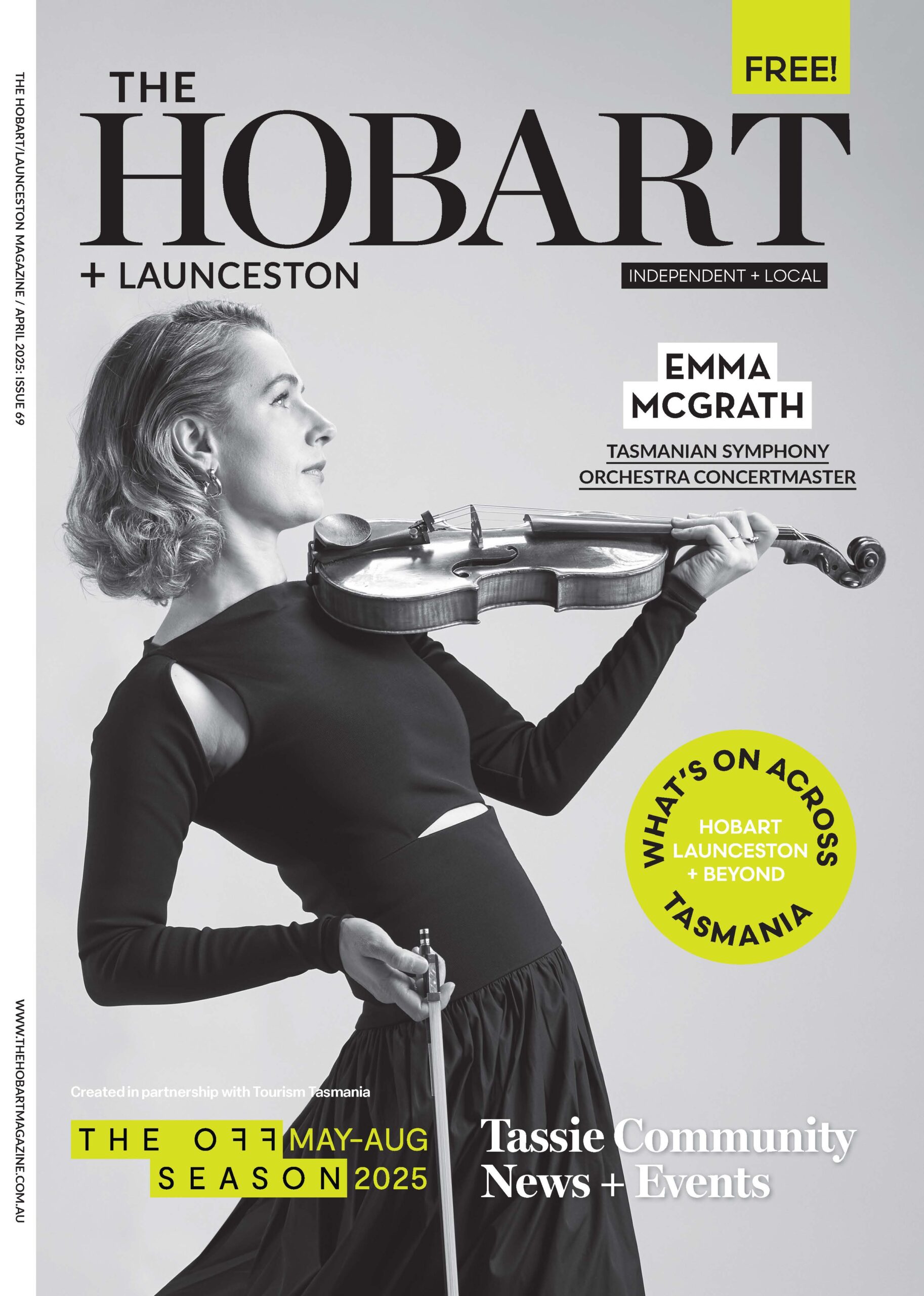George Bailey
by Stephanie Williams

Hobart local George Bailey calls time on his international and domestic cricket playing career this month, moving into the role of national selector for the Australian men’s team.
Did you make an active choice to pursue cricket when you were a kid? No, it was just a thing. Sport was really big. Mum played hockey and tennis and dad played cricket and tennis. As long as I can remember, there were bats and balls and racquets at home and that was just a big part of life.
When you were growing up, did you have aspirations to lead and play internationally or did that develop over time? I had no idea. In winter, I loved football, in summer I loved cricket, and tennis was all year round. But as a child I just wanted to play all of them for as long as I could.
And then you made the move from Launceston to the big smoke of Hobart for uni. A few friends were moving down after we’d finished school. I figured if I was going to take the next step sports-wise, I had to be here. Uni was a long journey for me. I started with a commerce degree and I actually just finished my Master’s of Business Administration this semester.
“As long as I can remember, there were bats and balls and racquets at home”
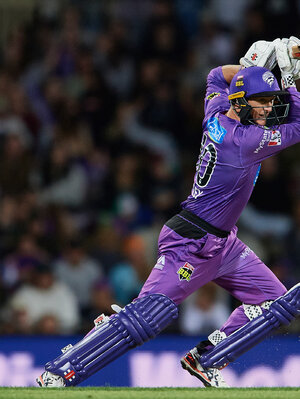
Did being in Hobart make it easier to pursue cricket, and did that take away from your studies? It did, but only because cricket took off, so there were a lot of international and interstate trips, so it just made it hard to get there. Uni has changed a lot in terms of access to online courses and flexibility provided to athletes now. If you wanted to pursue playing for Tasmania you had to be in Hobart to have access to the facilities and the coaching staff and best players. It didn’t take long for that to become the main priority.
The business of cricket is big, with many more domestic and international competition options now. You’ve been able to live in some pretty interesting places around the world. What effect does that have on players? My generation was really interesting. When we were young, the older players had all been semi-professional or amateurs. Then they were the first generation to start being paid enough to become professional. So we saw these guys who had been working outside jobs become cricketers full time, which probably meant for the first few years we were a bit lazier than we should have been! All the young ones now are doing some sort of study or personal development. I’ve loved living and travelling overseas for a number of reasons. It’s made me appreciate home and how lucky we are. It’s amazing when you travel to parts of the world and they say, “We’re famous for our seafood,” and you try it and you think yeah, nah…? Having access to nature and being so close to a major city. All of those things, brought home to me how special Tasmania and Australia is. The great thing about cricket is we play it in summer, so there was a period of about 13 years where I had very limited access to Tassie’s winters. I was out of there! The places are one thing, but also the people, and that’s the one thing that I’ve been most grateful for sports-wise, is that the sport lasts a period of time, but the friendships and being able to go back to India until I’m 60, 70, 80 and being able to reconnect with those people, or England or South Africa, Sri Lanka, that’s going to be the greatest.
Is it harder for younger players coming through now to manage the business side of their life? No, it’s well supported. As you said, there’s so many domestic competitions worldwide, there’s so many international options, there’s three different international formats. It’s pretty unique for a sport to have three different ways to the top echelon. I think young players have great opportunity there. The one thing I do feel sorry for them is the scrutiny and the pressure that seems to come from the way we live our lives through social media. It’s a constant and ever-evolving challenge.
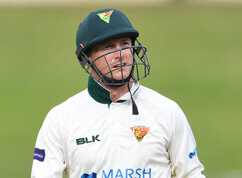
Tasmania has produced some fine cricketers and strong leaders. Why do you think that is? One of the great things about living in Tassie is we don’t spend huge amounts of time commuting, particularly as children, which means we have lots of leisure time. Growing up in Longford the sense of community meant there was a good level of trust around, having good freedom as a child. That meant you were able to play a lot. That informal way of playing and learning becomes very important once you trace people’s stories back to how they became as good as they are. On leadership, I can’t speak back to Boonie’s era, but in the 20 years that I’ve been part of Tassie cricket, we’ve just tried to forge a sense of team and a strong culture, and we haven’t really tolerated people who don’t want to buy into the vision of ‘the team comes first’.
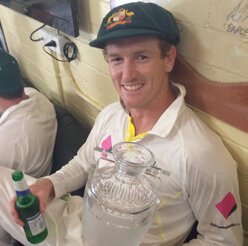
The politics of cricket is complex and there’s heat and passion coming from supporters. In your new role as Australian men’s selector, how do you plan to navigate the varying expectations? Well, my eyes are wide open to the fact that selectors end up never being popular! The joke is there are 26 million unofficial selectors in Australia and three official ones. But the fact we have a public who are so passionate and have such strong opinions is great. There’s sports that would kill for that level of interest and passion. I’m a bit naive as to how my role will work, but one thing I think I can make a strong impact on quite quickly, being one of the youngest selectors they’ve had for a while, is bridging that level of expectation on communication between the players and the selectors, and bringing a really clear perspective of what the current players are after.
Being a selector so soon after retiring would actually be such a benefit. Absolutely. And being aware of every time you’re making a great phone call and telling someone they’re fulfilling their childhood dream of being able to play for Australia, you’re also at the same time breaking someone’s heart. For probably the majority, that might be the only chance they get, so it’s trying to balance that devastating blow and trying to put the support network around those guys so they’re in a good place mentally and can still go and perform domestically, and get back to playing for Australia. But at the same time, the feeling you get from being able to tell people that they’re about to debut for Australia. It obviously has a big impact on that person, but the also their family and the mums and dads who have taken them to training all those years.
What sort of time commitment is being a selector? Is it a full time gig? Well, officially yes. Clearly there are times when you’ll be a lot busier than others. We touched briefly on social media stuff, but there’s been some really public cases of cricketers and sportsmen struggling with that mental pressure of what it’s like. Us trying to develop a framework for how we can help and support the players around that sort of thing, I think all of that becomes part of the role as well. You’re obviously trying to pick teams when those are on, but you’re also trying to continually improve and develop the structure around the players in generally.
“Seeing the sun come up in the morning from Bellerive Oval is pretty special!”
What else do you have on the horizon for after February? I’ve got two young children (four years and 20 months), so one of the flip sides of playing for 20 years is hopefully spending longer stints at home with them. Despite all the travel, I’m a homebody. I love being at home and cooking and gardening and taking it easy. The selector role happened really quickly and probably fast tracked the decision to retire. I think there’ll be some opportunities that will pop up over the next 12 months that hopefully I can stay involved in the Tasmanian community.
You’ve been described as one of the most “respected, thoughtful and generous figures in international cricket.” How have you crafted that over the years? I think family is huge, not that you’d appreciate it at the time, but I have an incredibly supportive and loving family. I’ve never felt like I really belonged at the upper echelon, so I’ve always been very grateful, and for that I’ve always tried to enjoy the little things. When I’ve had the opportunity to travel, I try and not just make it about cricket grounds and hotels and try and get out and explore to get a sense of the culture and the people of wherever you might be. Trying to keep a big picture outlook has been the way that I deal with that sort of stuff.
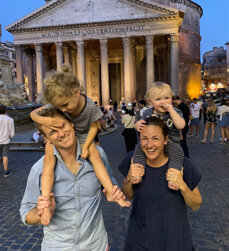
What do you love about Hobart? I love the fact that we have seasons. If we didn’t have those, like when you’ve really had enough of winter, I don’t think we’d appreciate our summer. I love how Hobart changes each and every year.
Where’s your favorite spot for a bite to eat? Ti Ama, Suzie Luck’s.
To grab a drink? Willing Brothers. And a mate, one of the cricketers, James Faulkner, just bought Shippies, so I better give that a plug!
Favorite spot for beach time or a bush walk? We spend lots of time at either Bellerive or Howrah beach, find our sneaky little corners in there. If we’re going bush walking we just tend to go up and around Mount Wellington.
What do you hate about Hobart? What’s your pain point? I’ve got two things. Trying to get your favourite bands to come down so we can access really top live music, and connecting flights. Unless it’s Melbourne or Sydney, too many times we have to get that 6am out just so we can get the connector.
And what do you love about Blundstone Arena? It doesn’t happen often, perhaps only after we’ve won premierships or titles, but seeing the sun come up in the morning from Bellerive Oval is pretty special! I haven’t had the opportunity to go there socially too often, it tends to be work. But with my new role, I’ll be looking for somewhere to sit, so maybe if anyone’s got any good secret seats that are out of the wind, that’d be great! ■

